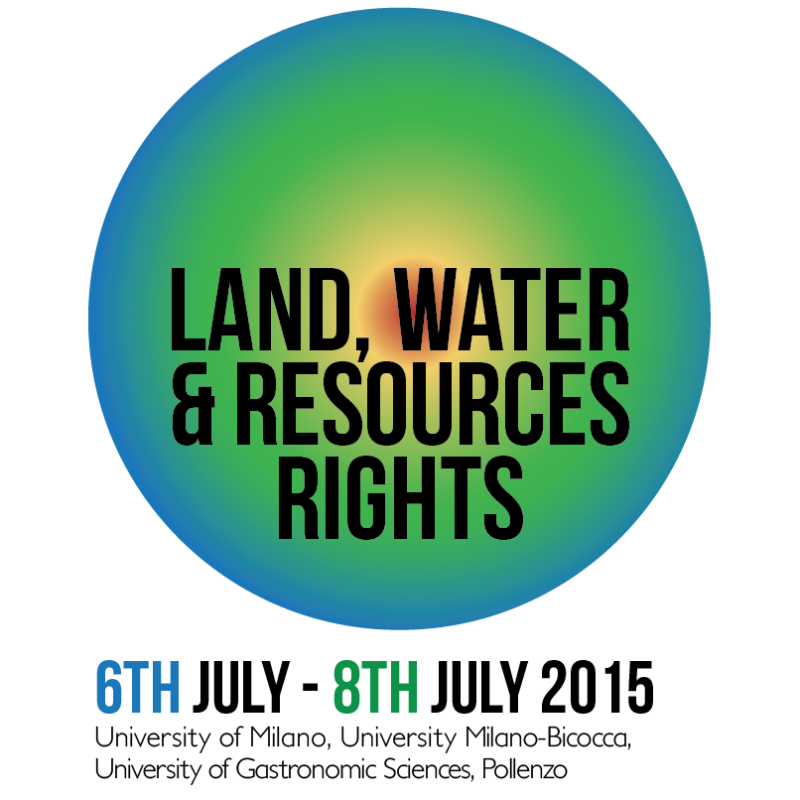Land, water & resources rights

The European Union set a series of supportive actions up to strengthen land governance in African countries, encouraging to apply the Voluntary Guidelines on the Responsible Governance of Tenure of Land, Fisheries and Forests (World Food Security, 2012), and financing African governments to support Land Tenure Regularisation Programmes. It is believed that demarcating title deeds improves land tenure efficiency and harmony in the countries. Nonetheless, day after day, the global spectacles of communication return effects from unrestrained soil consumption, unsustainable land grabbing, disregard for the livelihood of people, along with an irresponsible erasing of ancient land tenure practices, customary rights and knowledge derived from progressive adaptation to needs, soils and climate change. In short, an absolute disrespect for the Commons, in favour of the interests of the Capital, channeled by the States, is neither prerogative of Africa, nor responsibility that EU members, RECs (Regional Economic Community) or Intergovernmental Agencies are immune to, within and out of their range of actions.
Not very often a powerful REC asks for advice to intellectuals to correct the imbalances of its actions, where huge investments to harmonise spots of the World are overwhelmed by bad practices carried on by a wild market masked by legal treaties. This Conference is an attempt to satisfy in a supportive way, such a demand. Three are the complementary coordinated analyses offered here: the connection between access to land and/as access to food [Gastronomic Sciences University, Pollenzo]; the policies of investments adopted within the EU and the role of multinational corporations [University Milano-Bicocca]; and the challenges implied in terms of global and regional governance where the equilibrium of complex relations within the concept of “livelihood” is pivotal. Land, water and resources rights will be analysed in terms of global, national and communitarian policies, here approached in a regional perspective [University of Milano].
We are grateful to the colleagues disposed to come from different edges of the World for this task, and acknowledge fruitful exchanges with the colleagues of our respective Departments, the members of ASERI and ExpoLAB of Università Cattolica del Sacro Cuore (Milano), in preparing this event. The Round table convened in the evening of the 7th of July is dedicated to the international cooperation. NGOs’ will testimony their actions confronting with experts and a Public Administration involved in co-development projects.
The Academic venues warmly welcome Citizens, Visitors to Expo 2015, NGOs and Public Administrators.
Medium of the Conference is English.
Cristiana Fiamingo [University of Milano]
Carla Maria Gulotta [University of Milano-Bicocca]
Paolo Corvo [University of Gastronomic Sciences, Pollenzo]
PROGRAM
6 July 2015 A.M. – University of Gastronomic Sciences, Pollenzo
Guest IULM University, Aula Magna, via Carlo Bo, 1, Milano
9.30-9.45 REGISTRATION
9.45-10.00 WELCOMING REMARKS:
Giovanni Puglisi [Rector of IULM]
Piercarlo Grimaldi [Rector University of Gastronomic Sciences, Pollenzo]
Claudia Sorlini [President of the Scientific Committee for the Municipality
of Milan for Expo 2015]
10.00-10.30 KEYNOTE SPEECH
Kenneth Hermele [University of Gothenburg]
“The drivers of land grabbing: food, feed, fibres, fuel, finance and
forests”
10.30-11.45 – I SESSION – Land Rights and Consumption
Access to food is the pivotal approach of a session which intends to analyze the most important questions about land rights with an interdisciplinary approach, showing some interesting problem solving perspectives, in an attempt to provide a contribution to the policy of the European Union on the matter.
* Paolo De Castro [EU Commission of Agriculture and Rural Development]
in VIDEO-connection: “Food and water: global challenges”
* Paolo Corvo [University of Gastronomic Sciences, Pollenzo]
“The defence of land rights: a responsibility for the consumers”
* Mauro Ferraresi [Iulm University]
“New consumers and the critics of consumption”
* Lorenzo Bairati [University of Gastronomic Sciences, Pollenzo]
“Recognizing customary land rights in pluralistic legal systems: conflicts,
challenges, future perspectives”
* Simone Cinotto [University of Gastronomic Sciences, Pollenzo]:
“Food processing from the pre-industrial age to mechanisation and deterritorialisation”
11.45-13.00 – II SESSION – A proposal for a holistic approach to Land Rights
Nicola Perullo & Michele Fino [University of Gastronomic Sciences, Pollenzo]: “Pollenzo’s Manifesto: towards the Manifesto of Gastronomic Sciences”
